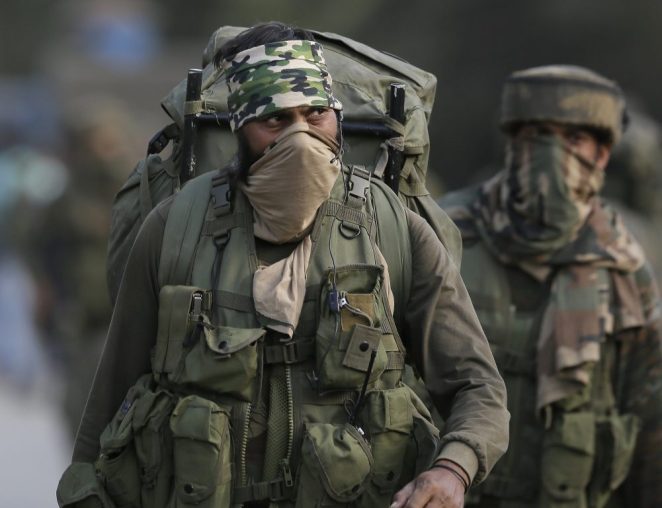This article is written by Shivani Nair, from Manipal University Jaipur. This is an exhaustive article which deals with the topic of the responsibility undertaken by the States for the actions of the Terrorists.
Table of Contents
Introduction
In the world today, there are a number of private groups that possess arms and are threats to society. Many such groups usually methodically plan attacks in advance, and may train participants, plant undercover agents, and raise money from supporters or through organized crime. Such kinds of terrorist groups use such methods and means that are incompatible with humanitarian law and their means have the potential of harming both domestic and international peace-keeping. The fight against terrorism involves many practical and legal difficulties. The private terrorist organisations do not generally have an enclave but host from the territory of certain States. This means that if the State that is injured as a result of the terror attack has to fight against terrorism, it also has to use arms against that State where the terrorists reside. This is where the State has to be responsible and act wisely in order to prevent more terror attacks. Through this article we shall learn how States are responsible for the actions of the terrorists.
What does Terrorism mean?
The term “terrorism” signifies acts that promote violence, and targets civilians who are in pursuit of political or ideological aims. The international community has yet to adopt, in the legal terms, a proper definition for the term “terrorism”. Terrorism includes criminal acts that consists of acts against the civilians committed with the intent to provoke a state of terror, or cause bodily injury or death of a person in the general public, to intimidate a population or to compel the Government of any international organisation to work for them or fulfill their demands.
Responsibility of the State
There are many responsibilities that a State takes up especially if it is the State where the terror organisation resides. The State has to take the responsibility of the terror organisation that disrupts the peace and harmony of the Domestic as well as International territories. Some of the responsibilities have been stated below.
Principles of the State Responsibility
All sovereign States have been given equal rights. But along with these rights, come equal responsibilities too. These duties include respect for the other sovereign States as well. When one State violates the rights of another, it is considered to be responsible for the injury caused in the process to the other State and has to compensate for all the damages caused. The State is subject to the breach of international law and has to take full responsibility in providing remedies for the injured State.
The law related to the responsibility of the State for the actions of the terrorist organisation arises from the fact that it is based on the concept of agency. The rules regarding responsibility of the State have slowly developed to hold the State responsible for the violence caused. Where the State has the duty to protect the individuals residing within its territory, then in all regards the State has to be held liable for the acts committed in the violation of this duty. The fact whether the State bears an indirect or direct responsibility is usually determined by the fact that what kind of counterterrorism measures may be lawful and appropriate in these cases.
Changing nature of the State responsibility
The legal response against the attacks of the terrorists strongly suggests that the scope of the responsibility of the State has been widened. The States should formulate the support for terror as a clear breach of primary legal obligations which leads to a certain kind of liability under the traditional rules of the responsibility of the State. Unfortunately, the States have not agreed upon a universally accepted definition of terrorism and therefore, it causes confusion amongst them. Perhaps this can be summed up in a very famous maxim, ‘one man’s terrorist may be another man’s freedom fighter.’ What might be terrorism for one State may not be for another. However, even after that, if any harm is caused to the citizens of the State by any organisation, it might be termed as terrorism.
State responsibility for Private Actors
What is the State’s responsibility for the forcible actions of the terrorist groups? All the International States have an obligation to refrain from the threat or use of armed forces against another State. Therefore, if one State attacks the other State, the latter has an inalienable right of self-defence. Terrorism includes the use of violence, and therefore, they are similar to the armed attacks by the State. If the acts of an armed group are attributed to the States, then, in that case, the host State would have violated the international law.
Level of the involvement of the State
The decision to use the armed forces against the host State of the terror organisation must not be taken lightly as such drastic steps could have potentially serious consequences. There are four general levels of State involvement that can be identified. They are:
- Direction – the State is responsible for the active control and direction of the terror groups and their activities.
- Support – The State is not responsible for the control but is responsible for the encouragement given to them. They provide services, training, equipment, money, explosives, and other kinds of essentials to the terror organisations.
- Toleration – The State is not actively involved in supporting terror groups, but they don’t take any measures to prevent it as well.
- Inaction – The State is not in a position to deal with these terrorists, which may arise from the weakness due to politics.
A State cannot be held liable in a pretty equal manner for all the situations that have been described. More importantly, not every situation automatically calls for a military intervention. The remedial action always has to be proportionate to the consequences of the threats of the terrorist attack.
Grounds for State Responsibility
International law has foreseen a certain situation where the State is either for the private conduct itself or for the consequences arising thereof. The responsibility of the State comes from the fact that they harbour the terrorist organisations by funding them directly or indirectly. Only during this time, they need to face the legal implications.
Conduct of the De Facto Agents or Organs
States have been using the private persons or private entities even more for the performance of the public functions. As the States have employed these private actors to exercise in their place, the elements related to the authority of the government body, the former must bear the consequences of such actions.
When the relationship between the State and the private actor is formal, for example, if there is no legislative Act or any Contract, then, no disputes usually arise out of them, provided that the person or an entity acted in an official capacity. So if the State has hired a private armed group to carry out forcible acts against the other States, the State which has hired these groups shall be held liable for the actions taken by these private armed groups. Through this process, the States can also be held liable for the terror organisations in their territory.
However, the responsibility of the State becomes complicated if the State uses private actors who are neither organs nor employees of that particular State, but are still acting in an informal manner as the representatives of that State. It would be incorrect to deny the responsibilities of the State when it uses these private bodies as de facto agents of the State. If it is proven that the agent of the State is involved in the planning, plotting, direction, execution, and support of the violent acts, then, the imputability to a State of such action can be established. In other words, we can say that the terrorist groups or organisations who have known to be supported and directed by the help of the States, become de facto agents of that State.
Conduct adopted by the State
It has been established that the behaviour of a private actor not acting, in one way or another, on behalf of the State cannot be considered to be an action of the State. The liability of the acts should remain with the ones who committed the acts of violence. The conduct cannot be attributed to the State when the State merely acknowledges the factual existence of the conduct or expresses the verbal approval of it. In international controversies, the States often take the positions that amount to the approval or the endorsement of conduct in the general sense but do not involve any responsibilities’ assumption. These acts must be univocal and clear.
A State that has adopted a terrorist attack as its own shall be responsible to the State that is injured as if the attack has come directly from the hot State itself. This has never happened, and nor is it likely to happen in the near future, with the view in mind that the international law which is based on treaties, expressly forbids the States to engage in such kind of terrorism. If spoken from a legal perspective, this ground for the use of such responsibility, is rather limited.
Harbouring and Supporting Terrorists
The question that now arises and has to be finally answered is, whether or not the responsibility of the State should end with the attacks of the terrorists which were controlled or had been adopted by a State, or in the contrast, these States should also be held responsible for the terrorist activities when their involvement has been limited to training, financing or any other similar kind of support. In other words, we can say ask whether or not the States should be held liable for the tolerance or intolerance of terrorism?
To begin with, no State should harbour any sort of anti-national or any sort of growing terrorist organisations in their territories. They should not be allowed to cause any harm to the domestic State itself or any other State, be it a neighbouring State or a distant one. They should not allow any organisation to form a base and grow in their State.
The responsibilities of the States should be expressed in terms of complicity i.e, it should not be morally incorrect. The Security Council has, on numerous occasions, demanded that the States should refrain from getting involved directly, or indirectly with these terror groups and organizations. All the signatories to the United Nations have an obligation to follow this rule. It is their legal duty to comply with the decisions given by the Security Council.
If any State aids such terror groups in a way that its aid is insignificant or minor and without which the terror groups can function in a full-fledged manner, then the respective State cannot be held responsible for the commission of the terror offences as there is no active involvement of the State. Also, in the case where the State has taken active steps to cure the terrorism, but has not succeeded, then too, they should not be held liable for the same.
Conclusion
The last decade has been a witness to various kinds of violent attacks by the private armed groups and such gravity that was unheard of before. States that are directly affected by these attacks are willing and eager to act in order to prevent such attacks on the States or the allies of the States in future. Any operation against a private armed actor is complicated by the factor of these actors being located in some of the territories of the State. A line has to be drawn between the political – rhetorical and legal obligations, as only the latter can maintain objectiveness and such predictability in the inter-state relations. The guiding principle in relation to matters of State responsibility should be that all these States must have an equal right to the security and sovereignty and the injured states must have the right to act proportionally against terror attacks and the States which have participated in making such attacks possible.
References
LawSikho has created a telegram group for exchanging legal knowledge, referrals and various opportunities. You can click on this link and join:
 Serato DJ Crack 2025Serato DJ PRO Crack
Serato DJ Crack 2025Serato DJ PRO Crack











 Allow notifications
Allow notifications


